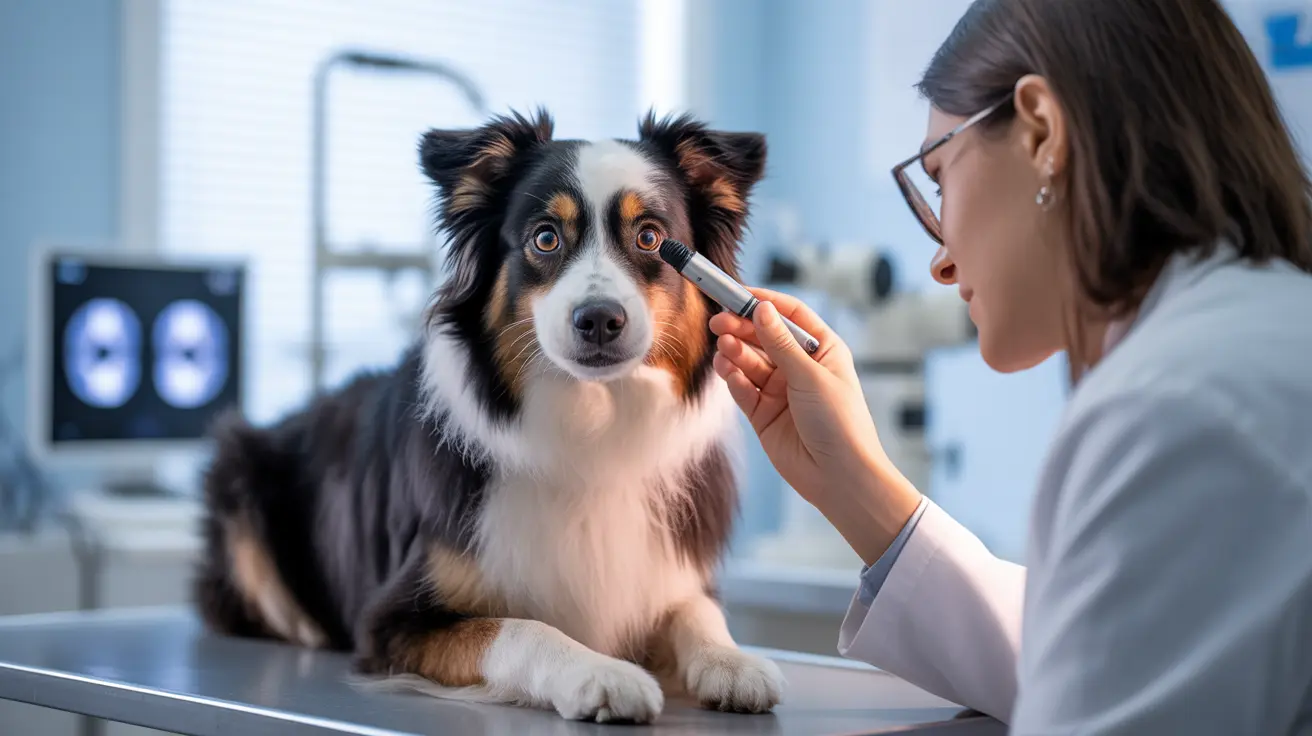Common Genetic Health Conditions
Eye Problems and Vision Issues
Mini Australian Shepherds are particularly prone to several hereditary eye conditions. Collie Eye Anomaly (CEA) is a genetic disorder that can cause vision impairment or blindness. Progressive Retinal Atrophy (PRA) leads to gradual vision loss, while hereditary cataracts typically develop after age two.
Regular eye examinations by a veterinary ophthalmologist are essential for early detection and management of these conditions. Genetic testing can help identify potential risks before they develop.
Skeletal and Joint Disorders
Hip and elbow dysplasia are significant concerns in Mini Aussies. These developmental conditions can cause pain, lameness, and eventually lead to arthritis. Early detection through screening and maintaining a healthy weight are crucial for managing these conditions.
Drug Sensitivity and Genetic Testing
The MDR1 gene mutation affects approximately 50% of Mini Australian Shepherds, making them sensitive to certain medications. This condition can cause severe or fatal reactions to common drugs, including some heartworm preventatives and anti-parasitic medications.
Genetic testing for MDR1 mutation is essential before administering any potentially harmful medications. Always inform your veterinarian about your Mini Aussie's breed to ensure safe treatment protocols.
Neurological and Behavioral Health
Mini Australian Shepherds may experience various neurological conditions, including epilepsy and degenerative myelopathy. Their high intelligence and energy levels also make them susceptible to anxiety and stress-related behaviors if not properly stimulated mentally and physically.
Preventive Care and Management
Proactive health management is crucial for Mini Australian Shepherds. This includes:
- Regular veterinary check-ups
- Genetic testing for known breed-specific conditions
- Maintaining appropriate weight and exercise levels
- Proper dental care
- Mental stimulation through training and activities
Working with Responsible Breeders
When acquiring a Mini Australian Shepherd, choose a reputable breeder who conducts comprehensive health screenings on breeding stock. Request documentation of genetic testing and health clearances for common breed-specific conditions.
Frequently Asked Questions
What are the most common inherited health issues in Mini Australian Shepherds?
The most common inherited health issues include eye problems (CEA, PRA, cataracts), hip and elbow dysplasia, MDR1 drug sensitivity, and neurological conditions like epilepsy and degenerative myelopathy.
How can I test my Mini Australian Shepherd for genetic disorders like MDR1 sensitivity and Collie Eye Anomaly?
Genetic testing can be performed through veterinary genetic laboratories. Your veterinarian can arrange testing or recommend a certified laboratory. Many breeders conduct these tests before selling puppies.
What symptoms should I watch for that indicate hip or elbow dysplasia in my Mini Australian Shepherd?
- Difficulty rising from rest
- Reluctance to jump or climb stairs
- Lameness or limping
- Decreased activity level
- Abnormal gait or "bunny hopping"
How do eye problems such as hereditary cataracts and progressive retinal atrophy affect Mini Australian Shepherds?
These conditions typically cause progressive vision loss. Cataracts cloud the lens and may require surgical intervention, while PRA causes gradual retinal degeneration leading to night blindness and eventually complete vision loss.
What preventive care and lifestyle tips help manage Mini Australian Shepherd health risks effectively?
- Regular veterinary check-ups and health screenings
- Maintaining proper weight through diet and exercise
- Mental stimulation through training and activities
- Genetic testing before breeding or medication administration
- Regular eye examinations by a veterinary ophthalmologist
Understanding and monitoring these health issues helps ensure your Mini Australian Shepherd leads a healthy, active life. Always work closely with your veterinarian to develop an appropriate health care plan tailored to your dog's specific needs.






